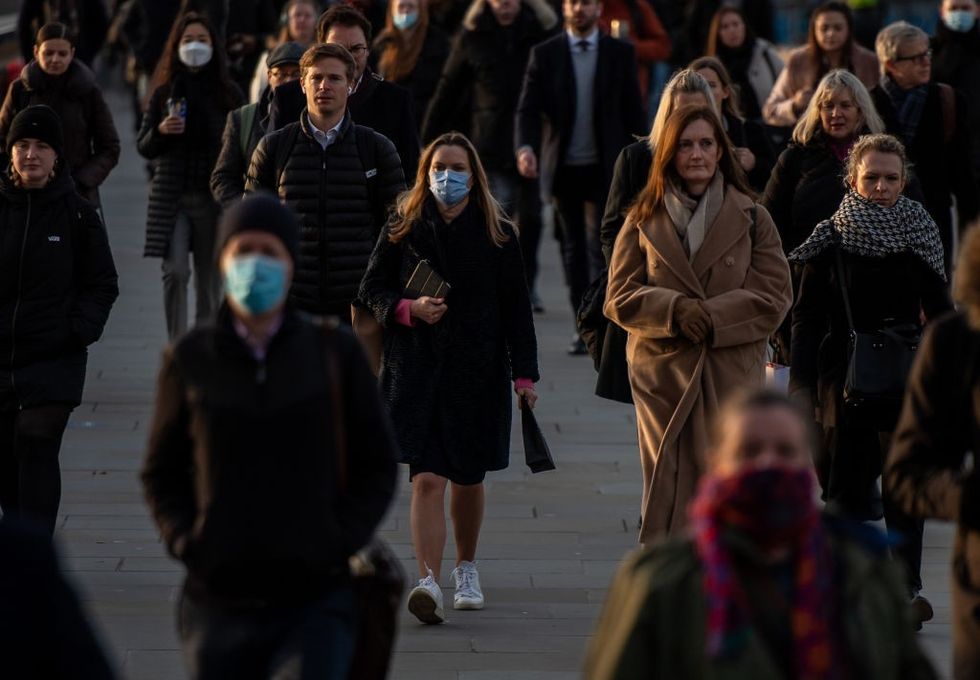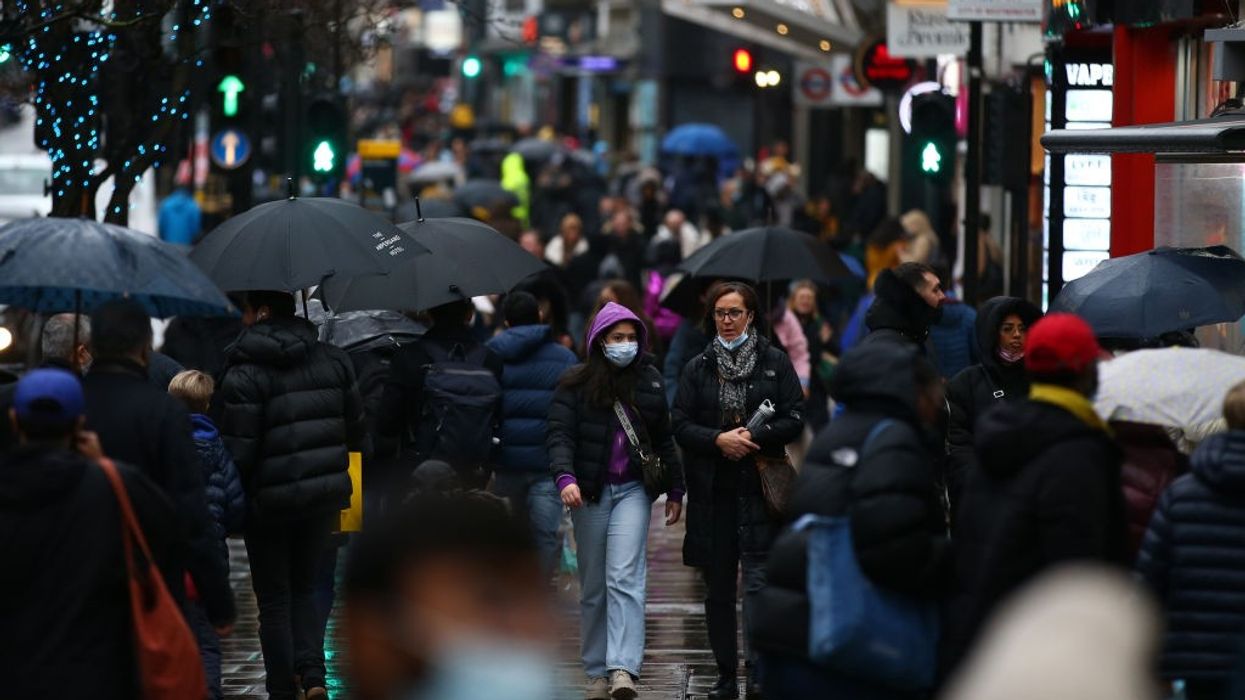BRITISH prime minister Boris Johnson will examine crucial hospital data on Monday (27) before making any new announcement on Covid measures, media reports said.
The Guardian reported that Johnson would “take stock” after being encouraged by improving data on Friday (24), a sign that No 10 is leaning away from stricter curbs in England.
It added that the prime minister will receive only his regular data briefing over the bank holiday with England’s chief medical officer, Prof Chris Whitty and the chief scientific adviser, Sir Patrick Vallance.
Downing Street said no decisions have been taken yet on whether extra measures would be introduced in England, but it previously said it would not hesitate to act after Christmas if necessary, according to a report in the BBC.
Key evidence that the government will examine on Monday includes data on the length of stay in hospitals, the transition rates to ICU and new death figures, the report added.
The current guidance requires people in England to work from home, wear face coverings in shops and other public settings and present Covid passes to gain entry to large events.

According to the Guardian, there is concern among some government figures about undeclared positive cases – including those asymptomatic but also those isolating after a lateral flow test whose results are not recorded by the NHS because they do not take a PCR.
However, cabinet ministers are still highly sceptical of further legal restrictions, a week after a tense three-hour cabinet meeting in which the majority pushed back against any new curbs.
Recently, a Health Security Agency analysis found those catching Omicron are 50 per cent to 70 per cent less likely to need hospital care compared with previous variants.
“The data so far is still struggling to be persuasive of legal changes to be required,” one cabinet minister said. Another said it was “right that we didn’t rush last time given positive, early data”.
But a hospital doctors’ trade union urged ministers to implement further measures without delay to help the NHS, including limits on household mixing and table service only in hospitality venues.
Dr Paul Donaldson, the general secretary of the Hospital Consultants and Specialists Association (HCSA), warned Johnson that “it would be ludicrous” not to respond more decisively to Omicron, and that Christmas mingling would inevitably have spread Covid.
“There is a high probability we are moving too late. We will soon start to see the impact of Christmas. We are holding out hope that hospitalisations are at the lower end of projections. But given the uncertainty we face it would be ludicrous not to take additional precautions," Donaldson, a consultant microbiologist, told The Guardian.
The HCSA also wants to see social distancing measures applied in retail and hospitality settings, such as mask-wearing, table spacing, limits on capacity and queueing systems, as well as social distancing and bubbles in all schools and continued working from home.
The NHS Confederation, which represents health service trusts in England, said any further steps would help the NHS, given the rising number of hospitalisations and staff off sick due to the virus.
The prime minister has pledged to his restive backbenchers, a significant number of whom rebelled over the last set of restrictions, that he will recall parliament before implementing new restrictions but it is possible any vote could be retrospective, should the decision be taken later in the week.
Johnson faced significant opposition from his cabinet before Christmas during a three-hour meeting where the decision was taken to delay any new curbs until after the festive weekend.
On Friday, papers released from government scientific advisers showed modelling for the impact of implementing “step 2” restrictions from Tuesday (28). That would mean an end to indoor gatherings and introducing the rule of six outdoors, with bars and restaurants only able to serve outdoors.
The modelling suggested that restrictions could reduce deaths by 18 per cent if kept in place until mid-January or 39 per cent if retained until the end of March, The Guardian report added.
New coronavirus restrictions come into force from Monday in Wales, Scotland and Northern Ireland. From Boxing Day, a maximum of six people will be allowed to meet in pubs, cinemas and restaurants in Wales, as well as other restrictions on numbers for larger events.
In Scotland, up to three households can meet, with 1-metre distancing between groups at indoor and outdoor venues such as bars, restaurants, theatres, cinemas and gyms. Table service is also required at places where alcohol is served.
Northern Ireland is also recommending restricting socialising to three households, while up to six people can meet in pubs, bars and restaurants.





